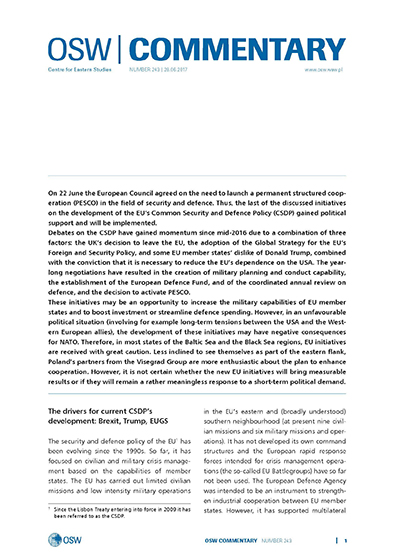High on reassurance, low on deterrence – Germany’s stance on strengthening NATO’s eastern flank
High on reassurance, low on deterrence – Germany’s stance on strengthening NATO’s eastern flank
Author(s): Justyna Gotkowska
Subject(s): Security and defense, Military policy
Published by: OSW Ośrodek Studiów Wschodnich im. Marka Karpia
Keywords: Germany; NATO; OTAN; Baltic States
Summary/Abstract: Germany’s stance on strengthening NATO’s eastern flank has evolved over the last two years. Berlin agreed to make collective defence a priority for NATO once again and consented to a greater allied presence in Poland and the Baltic states. Germany continues however to express reservations and is attempting to limit the scope of NATO’s engagement. The overall change in Germany’s policy was due to several reasons. In the last two years Germany has ceased to perceive Russia as a partner and begun instead to view it as a challenge to the security of Europe. Germany has also been pressed hard by its allies – the USA, Poland and the Baltic states - to change its position within NATO and to increase its military engagement on the eastern flank. Berlin has thus gradually expanded its military presence in the region – also in part so it may maintain its credibility within the alliance. However, Germany still eyes its military involvement on the eastern flank more along the lines of reassuring its allies than of deterring Russia.
Series: OSW Commentary
- Page Count: 7
- Publication Year: 2016
- Language: English
- Content File-PDF

